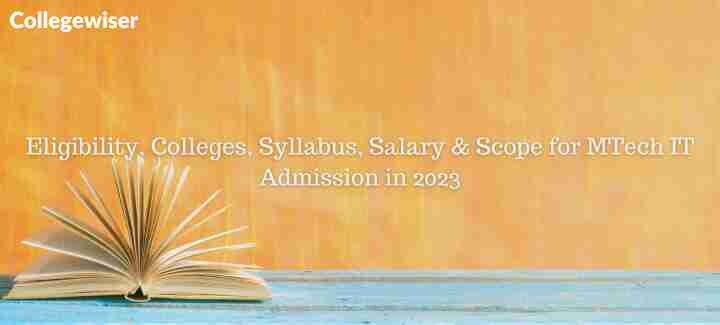Admission for a Ph.D. in Cardiovascular Technology 2023: A Ph.D. in Cardiovascular Technology is a doctoral degree program that teaches students about cardiovascular technology and equips them with research abilities. This course is designed primarily for students who have a solid foundation in medical imaging, cardiovascular technology, or biomedical engineering and who want to work in academia, research, or advanced clinical settings. Here is information on how to enroll in this course:
To be eligible to pursue this Ph.D. degree, each student must complete their coursework up to the master’s level. The only candidates who will be considered are those who have a master’s degree in cardiovascular technology or a related discipline. Such candidates had to have successfully completed their master’s degree with a minimum average score of 50%.
Enquiry Now!
Cardiovascular Imaging, Cardiovascular Biomechanics, Interventional Cardiology, Cardiovascular Device Development, Cardiac Electrophysiology, Cardiovascular Regenerative Medicine, etc. are some of the pertinent study areas in this field. Students can select any of these study areas to gain specialized knowledge.
The following steps must be followed in order to be admitted to the Ph.D. program in cardiovascular technology:
Application: The candidates’ application forms must be fully filled out with all necessary information and supporting documentation before they can be submitted. As required, candidates must include their most recent academic transcripts with their application.
Admission to PhD in Cardiovascular Technology Entrance Exams: Depending on the institute or university, different entrance exams may be required for admission to a Ph.D. in Cardiovascular Technology. There are some entry tests, nevertheless, such as GATE, JAM, AIIMS, and CSIR-UGC NET.
Interviews: Candidates are put through interviews to evaluate their communication, interpersonal, and other skills. The verification of the documents submitted by applicants at the time of admission is another benefit of such interviews.
Merit-Based Selection: In accordance with the policies of some institutes, candidates are also chosen based on merit. Only the candidates’ prior academic performance is necessary in these circumstances.
Typical Fees: The cost of a Ph.D. in cardiovascular technology ranges from 2 to 2.90 lakh Indian rupees annually.
Ph.D. Cardiovascular Technology receives an annual salary of between INR 06 and INR 09 lakhs (LPA).
Highlights of the Ph.D. Cardiovascular Technology Admission
| Course Name | Ph.D. Cardiovascular Technology |
| Degree | Doctoral Degree |
| Admission Process | Both Merit and Entrance Based |
| Full-Form of Ph.D. CT | Doctor Of Philosophy in Cardiovascular Technology |
| Duration | 3-5 Years |
| Average Salary | INR 6-9 Lakhs |
| Eligibility | Master’s Degree |
Admission to the Ph.D. in Cardiovascular Technology 2023
In two to four years, one can earn a Ph.D. in cardiologist technology, which is equivalent to a doctoral degree in the field of cardiology. Both heart surgery and technology research are included in this course. Entry options include those determined by entrance exams, merit, and even distance learning.
Admission Based on Merit
Master’s degree holders who wish to enroll in the Ph.D. program must earn at least a 55% overall grade in order to do so.
Admission to distance education
There is no PhD degree in cardiovascular technology offered through the distance learning system.
Admission Requirements for a PhD in Cardiovascular Technology
Candidates with an MA or MSc in Cardiovascular Technology may apply for this course. A Master’s degree requires a minimum cumulative average of 55%.
Admission Tests for Ph.D. in Cardiovascular Technology
JEST, NEST, and RIE are a few entrance tests that universities hold to admit students to doctoral programs.
Common Entrance Exam (CEE), Joint Entrance Screening Test (JEST) for PhD, National Entrance Screening Test (NEST) for Integrated M.Sc., and HBNI M.Sc. and DMRIT Admission Test (HBNI CAT)
Doctoral Cardiovascular Technology Framework
The average cost of the Cardiovascular Technology Course ranges from INR 2k to 2.90 Lakh.
Salary for a PhD in Cardiovascular Technology in India
Cardiac technologists in India are paid an initial starting salary of between INR 3 and INR 4 lakh annually. It increases to an average yearly wage of 6 to 9 lakh rupees in a matter of two to three years.
Technology in Cardiovascular PhD
Types of Full-Time Courses: Cardiovascular Technology Ph.D. is a full-time program.
Part-Time/Online: It is not a part-time option.
Choosing a Ph.D. in Cardiovascular Technology
Students must pass the entrance exam as a condition of moving on to the academic study for this course. There are merit-based admission methods in place for this course study as well.
Cardiovascular Technology for Ph.D. Curriculum
| Subjects of Study | |
| Research Methodology | Seminar |
| Clinical Cardiology | Field Study |
| Non-invasive Techniques | Dissertation |
| Invasive Cardiology Principals | Project Work |
| Biomedical Aspects | Thesis |
Admission to PhD in Cardiovascular Technology Career & Job Prospects
After successfully completing the program, candidates for a Ph.D. in Cardiology are exposed to a wide range of alternatives relating to the study of cardiovascular science and its research. People have the option to think about following a career in fields like research and development, clinics, healthcare, NGOs, the military, universities, government, and private hospitals after acquiring the necessary training and practical experience.
They can choose from a variety of professions, such as working as independent practitioners, surgeons, researchers, professors, cardiologists, scientists, doctors, and more. We offer candidates the following list of occupations as alternatives:
| Job Profile | Job Description |
| Surgeons | Gather information, analyze it, interpret it, and evaluate it in order to produce discoveries and solutions in the field of cardiology. |
| Cardiologists | They are experts in identifying, treating, and healing conditions affecting the heart and its blood vessels. Offer the appropriate treatments and drugs. |
| Researchers | Gather information, analyse it, interpret it, and evaluate it in order to produce discoveries and solutions in the field of cardiology. |
| Physicians | Making the diagnosis, providing treatment, coming up with a cure, and preventing heart-related illnesses are all parts of the role. |
| Professor | Give students the knowledge and abilities they need to become knowledgeable cardiologists by using a variety of techniques and resources. |
| Scientists | Based on the analysis, research, experiments, and trials in the field of the human heart and its blood vessels, draught, and design information. |
Note that the dates are merely estimates and could change. For further information on admission, go to the university’s official website.
Questions and Answers (FAQs) for Cardiovascular Technology PhD
What professional alternatives will I have once I’ve earned my Ph.D. in cardiovascular technology?
Ans: This program offers a variety of employment prospects, some of which are listed below:
cardiovascular specialist
A vascular technician
Assistant physician non-invasive cardiology technician
Lecturer, Cath Lab Technician, Invasive Cardiologist
Cardiology with Echo
After earning a Ph.D., how simple is it to land a job?
Ans: You will have a wide range of fantastic job prospects in the corporate sector open to you as soon as you earn your Ph.D. There are numerous avenues you might take to land a job once you’ve finished your PhD degree.
What are my career options with a PhD in cardiovascular technology?
Ans. A student who has earned a Ph.D. in cardiovascular technology may apply for a variety of job profiles, including those for non-invasive cardiology technicians, invasive cardiologists, Cath lab technicians, researchers, professors, cardiologists, scientists, assistant physicians, lecturers, echocardiographers, and others.
In what country does cardiovascular technology pay the most
Ans: A cardiovascular technician’s income ranges from 6 to 9 lakhs, which is the maximum that can be earned. Does the pay for cardiovascular technologists in India change as they gain experience?




